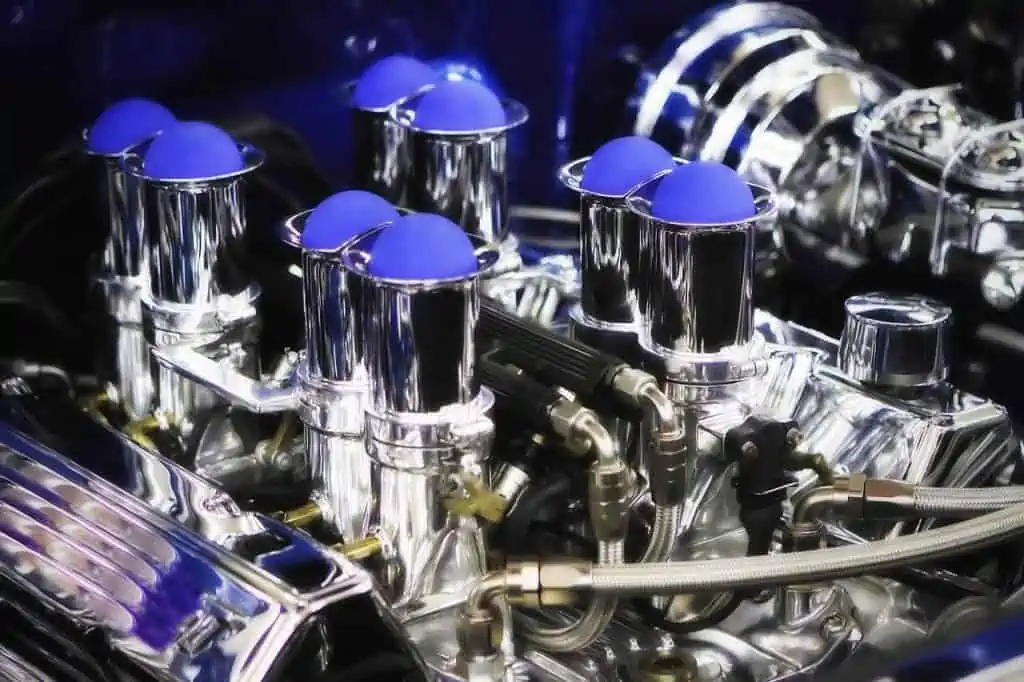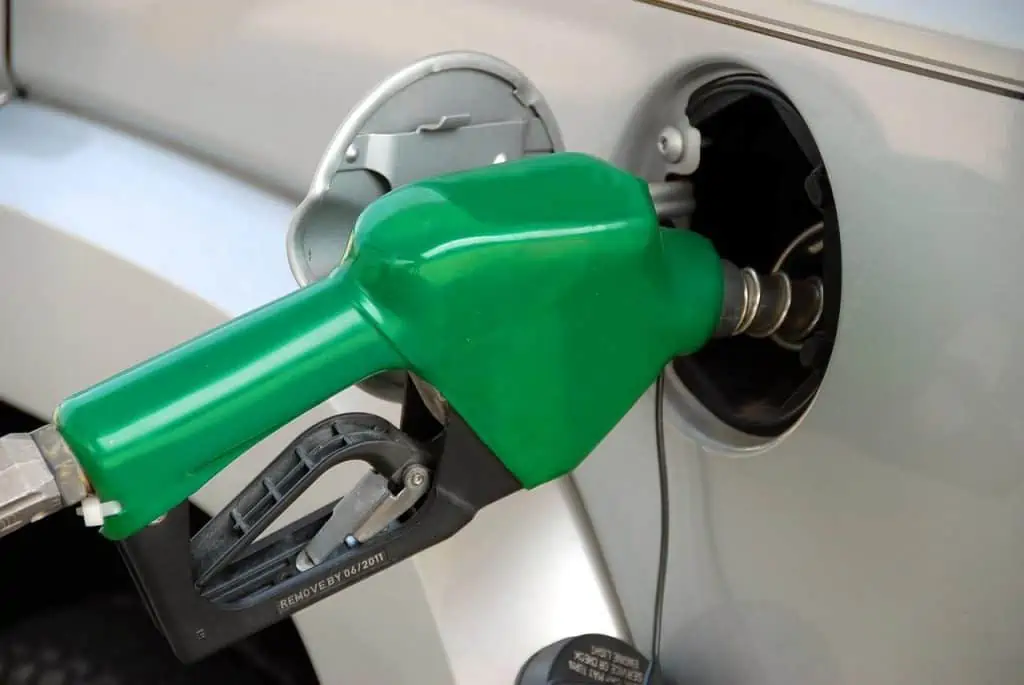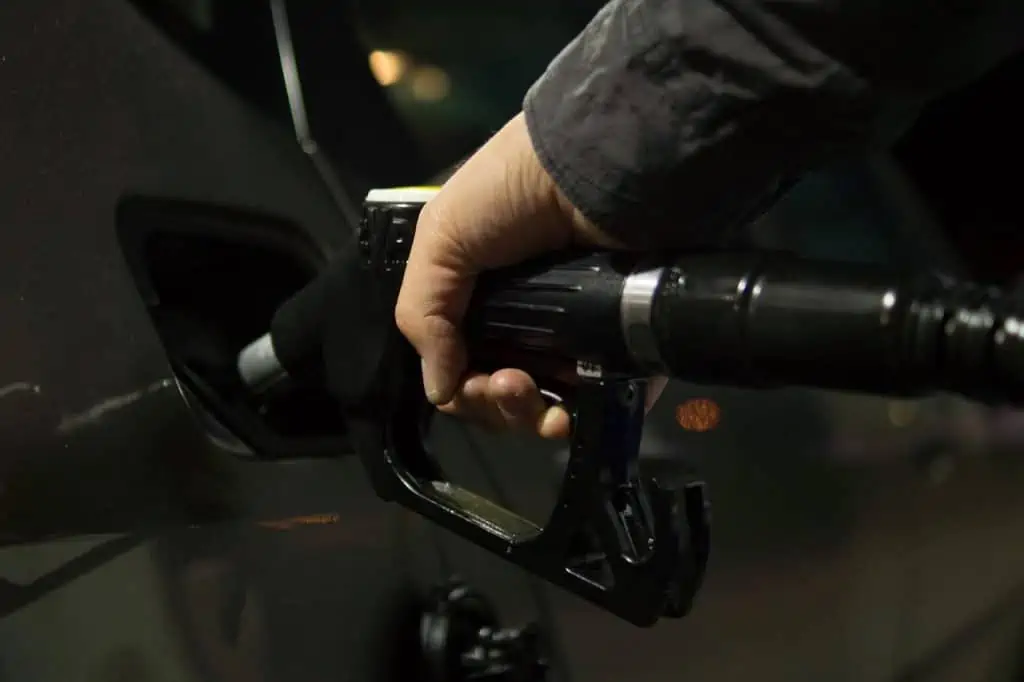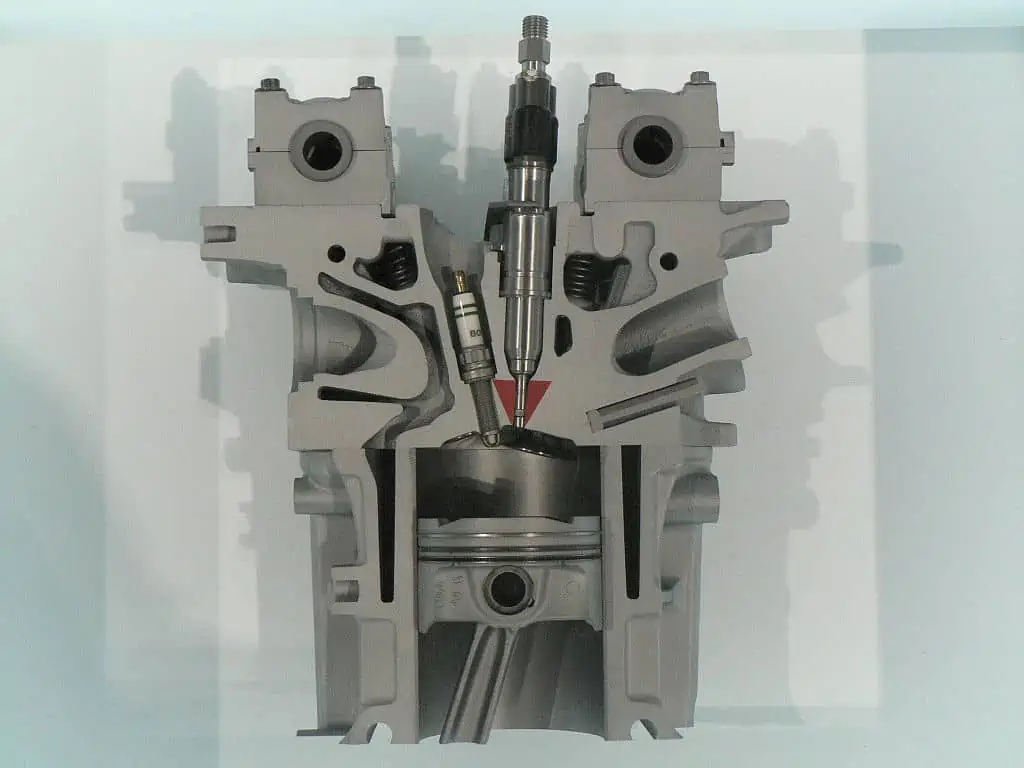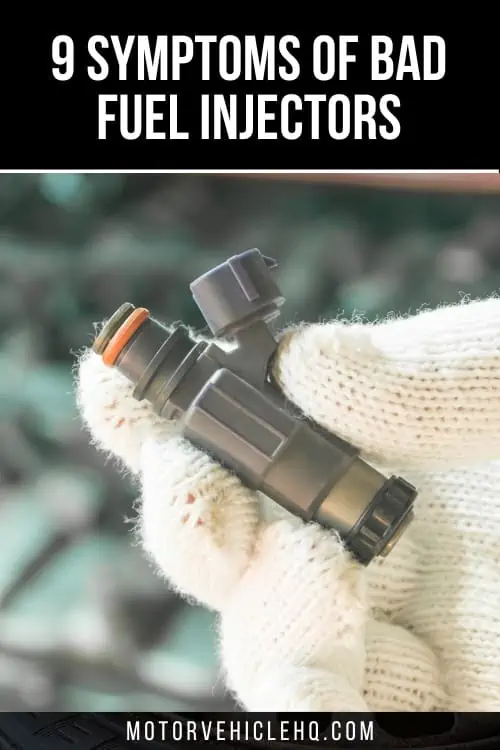A precise amount of gasoline is pumped into the cylinders thanks to the fuel injectors. Here’s how to detect whether you are looking into the symptoms of bad fuel injectors, whether they need to be replaced, and how much it will cost.
An essential part of the fuel injection system used in virtually all modern automobiles is the fuel injector.
The job of giving gasoline to the car’s engine is taken over by a fuel injector, and often, if the automobile has a defective fuel injector, it can lead to many issues.
In this article, we’ll examine the fundamentals of a fuel injector as well as how to diagnose one and take preventative action to increase its lifespan. Let’s start by examining the warnings:
The most typical sign of a malfunctioning fuel injector is a misfiring cylinder together with a dashboard check engine light. A rattling engine or a foul gasoline odor at idle are some potential symptoms. It can also be a warning if your engine stalls when it’s idle.
The performance of the car will be affected by any fuel injector issues because they are directly related to the engine.
This page includes a more thorough overview of the most typical symptoms you could experience as a result of a poor or malfunctioning injector. However, it will be crucial to understand the location and operation of the fuel injector first.
How Does a Fuel Injector Function?
A fuel injector’s primary job is to provide fuel to the engine. To start the internal combustion process, the injector uses a nozzle to spray (inject) gasoline into the engine’s cylinder.
The fuel must be applied in the proper quantity, at the proper pressure, angle, and spray pattern.
Any vehicle’s “brain” or main computer, the Engine Control Unit (ECU), controls several little parts like the fuel injector. Through a variety of sensors, the ECU ensures that the injector sprays the exact amount and timing of fuel so that the proper air/fuel combination is produced.
Gasoline is forced via fuel lines and into fuel injectors by a vehicle’s fuel pump. The fuel injector solenoid opens when the ECU signals that fuel is required, allowing the pressurized fuel to spray into the cylinder.
Where Is the Fuel Injector Located In a Vehicle?
The fuel injectors are situated beneath the fuel rail, which is frequently found on the intake manifold, on the engine’s intake side.
In most situations, gas fuel injectors are mounted on the intake manifold, but if you drive a diesel vehicle, your fuel injector is probably housed in the cylinder head.
Occasionally, an automobile with direct injection will have the injectors mounted within the cylinder head.
What are the Common Symptoms of Bad Fuel Injectors?
Your vehicle’s engine won’t be able to operate as it should if one or more of your fuel injectors have a problem.
A malfunctioning fuel injector either prevents fuel from entering the engine at all or messes up the intervals at which it should be sprayed. In either case, your car won’t operate as it should or could even be impossible to drive.
Here are 9 warning indications of a malfunctioning fuel injector that you may spot right away. Before investing the money to replace them, it’s always a good idea to try running a good fuel injector cleaner through your fuel system since some of the symptoms of a blocked or filthy fuel injector may be similar.
As an alternative, you could need to employ a repair to thoroughly clean the fuel injectors or buy a kit and do it yourself. In any case, you should address the problem very once to prevent significant engine damage.
Engine Stalls or Has a Rough Idle
The RPM when idling decreases below the ideal level, causing a harsh or even violent idle because the vehicle is not receiving enough gasoline or has an inconsistent supply of fuel. The automobile will stall if the RPM drops too low, forcing you to restart.
Vibrations from the Engine
A malfunctioning fuel injector prevents the matching cylinder from starting. As a result, the engine will tremble or hiccup while you’re driving as it tries to complete each cycle without gasoline.
After completing a full cycle, the engine will begin to vibrate if it is not receiving enough gasoline. A dirty or clogged fuel injector can have harmful consequences for turbocharged engines and cause a detonation that can harm the engine.
The engine vibrates while it is operating in the turbocharged mode because it needs a lot of gasoline and the fuel injector may not be able to supply it.
A Misfiring Engine
The engine will misfire while you’re driving if the injector is blocked and does not spray enough gasoline into the engine. When you press the gas pedal, your car will either have trouble moving forward or halt.
In either case, you must address the issue quickly to prevent the engine from overheating or other issues that arise when the ideal air/fuel ratio is disturbed.
This has to be addressed right away since it might do major harm to your engine and cause it to start banging.
A Check Engine Light Comes On
The dashboard’s check engine light flickering is one of the most noticeable signs. An electronic signal is provided to the driver to alert them if one of the fuel injectors is blocked or unclean and not effectively giving gasoline to the engine.
Please be aware that there are several additional situations in which the check engine light may come on. One of these can be a defective fuel injector, which is indicated by a code like P0201. It is advised that you take your automobile to a garage so that it may be checked for error codes.
Use an OBD2 code reader to verify your fault code memory if your check engine light is flashing. You can read the fault code memory at home, and they are not that expensive.
The efficiency of the engine is reduced if an injector delivers less fuel than necessary (or more in rare situations), which might cause the CEL to illuminate.
A Fuel Leakage
Gasoline will start to seep out of a fuel injector that has been damaged or that has become old. In other words, the gasoline won’t be able to go to the nozzle and will instead leak from the body.
Gasoline can be seen on the outside of the surrounding fuel rail if you inspect the fuel injector. The fuel injector seal frequently leaks over time due to deterioration.
Fuel Smell In the Vehicle’s Cabin
You will smell gasoline when there is the gasoline that is not being burnt because an injector is broken or is jammed open. This is related to a fuel leak.
Your gasoline lines or a malfunctioning sensor that instructs the ECU to inject more fuel than necessary may occasionally be the problem.
External leaks in the engine bay or leaks into the exhaust pipe are both potentially dangerous since they might cause your automobile to catch fire.
In any case, you need to identify the source of the gasoline smell and address it quickly before it becomes a serious safety risk.
The Engine Surges
The engine will surge if the fuel injector is pouring too much fuel into the cylinder, which will result in substantially slower acceleration.
Driving will make you aware of how the engine’s RPM fluctuates under continuous load as opposed to staying constant.
Poor Fuel Efficiency
The demand for the injector to provide more fuel will increase if the engine is not receiving the proper amount of fuel for combustion. Due to the surplus gasoline that the car’s ECU believes is required but is not, this leads to poor fuel efficiency.
A bad injector may cause a decrease or increase in fuel efficiency, which you can see if you routinely check your fuel usage. The engine receives either too much or too little gasoline than is necessary when an injector is malfunctioning, which lowers the vehicle’s fuel efficiency.
If you think your fuel usage has changed, a faulty fuel injector can be to blame.
Emissions Test Fails
Increased emissions happen as a result of an incomplete or uneven fuel burn that might be brought on by a damaged or leaky fuel injector. This increases the likelihood that you may fail an emissions inspection.
This is because too much or too little gasoline will be sufficient to raise emissions and prevent the catalytic converter from performing as intended.
In extreme instances, a fuel injector leak can make the air/fuel ratio so high that the catalytic converter finally burns out.
What are the Common Causes of Bad Fuel Injectors
Just being aware of the symptoms of an engine problem is insufficient. You need to be aware of any specific potential problems. Here are some potential reasons why your injectors might malfunction:
The Fuel Injector Wear and Tear
Sometimes you don’t immediately notice a drop in fuel efficiency or that your engine isn’t quite as strong as it once was. This may be the case since the issues develop gradually as a result of your injectors’ continuous wear from regular engine operation. Your injectors eventually deteriorate because of the constant high pressure and volume of fuel passing through them.
An ”Off” Injector Timing
Engine efficiency and power can be lost since combustion is a complicated process and can be negatively impacted by even the slightest timing error. Depending on the sort of fuel system your engine has, poor injector timing might include more components than simply the injector itself and affect when gasoline is delivered into the cylinders.
A Broken Injector Tip
An injector’s tip could explode. The fuel becoming contaminated by air or water and impacting the pressure buildup is the most common cause of this.
It’s crucial to identify the origin of the contamination in addition to the blown tip since some injectors, namely common rail injectors, are more susceptible to contamination than others. If not, even after replacing your injectors, you’ll still experience problems.
Fuel Injector Clogging
Gasoline injectors may get clogged or obstructed as a result of accumulations of carbon, old fuel, and other debris. Your engine loses power as a result of these obstructions since they prevent gasoline from passing through them. If the block is not cleared out quickly away, the engine may misfire.
Fuel filters that are not working properly may be the source of the jams. The problem could be resolved by professional cleaning, but it might also call for a total injector replacement. Again, to assist avoid the problems from occurring right away again, make sure you also troubleshoot the reason your injectors became blocked in the first place.
Fuel Injector Leakage
O-rings, seals, the top, bottom, or the body of the fuel injector can all leak, as can the body from extreme corrosion. In certain circumstances, the damage can be fixed by simply changing the faulty seals or o-rings.
However, a badly corroded or broken injector most certainly has to be completely replaced. The injection and combustion processes are impacted by a leaky injector because sufficient fuel pressure cannot be maintained.
If the leak is not fixed, gasoline contamination in other parts of your engine might result in expensive damage to other engine components.
What Is the Cost of Replacing Bad Fuel Injectors?
Fortunately, most fuel injector problems may be resolved by having them professionally cleaned or, if there is a leak, by replacing the O-rings. However, replacing a fuel injector is required and can be costly when it cracks or breaks.
Even though each fuel injector is unique, they are made to function as a team with the other injectors. Therefore, the answer is usually always to replace them ALL if you’re considering whether to replace just one injector or all of them.
You should typically budget between $850 and $1,500 for a complete fuel injector replacement, depending on your vehicle’s make and model. The cost of labor will be between $250 and $300, with parts alone costing between $650 and $1250.
Of course, there are exceptions. While some makes and models of automobiles might cost upwards of $2,500 for a replacement, using non-OEM components can help you save some money. It seems logical to compare jobs of this nature.
Depending on whether you have a gas or diesel engine, the price of the fuel injector may vary significantly. Diesel injectors can cost $450 or more as parts since they are frequently quite costly.
Even though it can be challenging on some gas engines as well, replacing diesel injectors is frequently more difficult than replacing gas injectors.
What Is the Cost of Cleaning Clogged Fuel Injectors?
Although fuel injectors do not live forever, you may take precautions to extend their lifespan as much as you can. The fuel injectors should be cleaned about every 30,000 miles, according to several experts. Injectors won’t clog in this manner, keeping gasoline from shooting into the cylinder and preventing clogging.
Your fuel injector may occasionally just be jammed with dirt. This may be brought on by a defective fuel filter that allows dirt to enter the fuel injector. In this situation, the fuel injector frequently has a very little filter inside of it that you may change.
Another situation is when the fuel injector has been sitting idle for a while and needs some lubrication, especially if you’ve been using ethanol as fuel.
Keep in mind that the ideal technique to clean injectors is to do them all at once to prevent varying volumes of fuel spray after the cleaning.
You may get your fuel injectors cleaned at some specialized establishments. However, as the issue usually recurs after a fuel injector cleaning within a year, I advise replacing the fuel injector instead.
Using Cleaner for Fuel Injectors
A bottle of fuel injector cleaning may be used on occasion as preventative maintenance, and it is reasonably priced. The price range for a bottle of cleaning is between $15 and $20.
For routine maintenance, you should use one bottle around the time you replace your oil, but if your injectors are already exhibiting indications of clogging, you should use it more frequently—every time you fill your gas tank.
A cutaway model of a petrol direct-injected engine by Ton1~commonswiki / CC BY-SA 3.0
Professional Cleaning of the Fuel Injector
A more costly expert cleaning is necessary for more serious situations of dirty or blocked injectors. You should budget between $100 and $150 for this service.
Some businesses even let you send them your filthy injectors, and they will clean them for $20 to $25 apiece before sending them back to you. They’ll likely conduct the most comprehensive work, but if you depend on your car, there may be some waiting.
DIY Cleaning Kit of the Fuel Injector
An alternative is to buy a fuel injector cleaning kit, which will often pay for itself after a few uses and is available for full-time or part-time professional mechanics. A decent kit (like this OTC set) will come with a variety of adapters so you can work on the majority of fuel-injected cars.
How Can You Make Your Fuel Injectors Last Longer?
An automobile would inevitably experience bad fuel injector symptoms at some time in its lifespan. There isn’t a secret formula that will keep your fuel injectors working forever.
The greatest and most fundamental thing you can do is to routinely replace your gasoline filter as advised by your car’s manufacturer.
Some automakers additionally provide gasoline additives that are completely safe and beneficial for every part of your automobile. For instance, one of the brands is BMW.
The highest grade of gasoline or diesel is also intended for use in vehicles with accurate fuel injectors, which are all vehicles built during the previous 15 years.
Avoid putting low-grade fuel in your automobile since it contains additives and detergents that might clog your fuel injectors.
Conclusion
Your engine’s fuel injectors are a crucial component. As a car owner, keeping them healthy should be one of your top concerns. You do not want to have to deal with pricey engine damage as a result of failing to accomplish this.
The majority of the symptoms mentioned above are caused by clogging, coking of the injectors, short-circuiting of the injector solenoids, deposits from fuel additives, and damaged connections to the control unit.
It’s crucial to seek the assistance of a qualified service facility with a focus on fuel injectors. They will have diagnostic instruments that can read the cable connections connecting to the fuel injectors as well as the error “memory” of each fuel injector.
In any event, getting a professional diagnostic is your best option for finding the cheapest solution to your fuel injector problems.
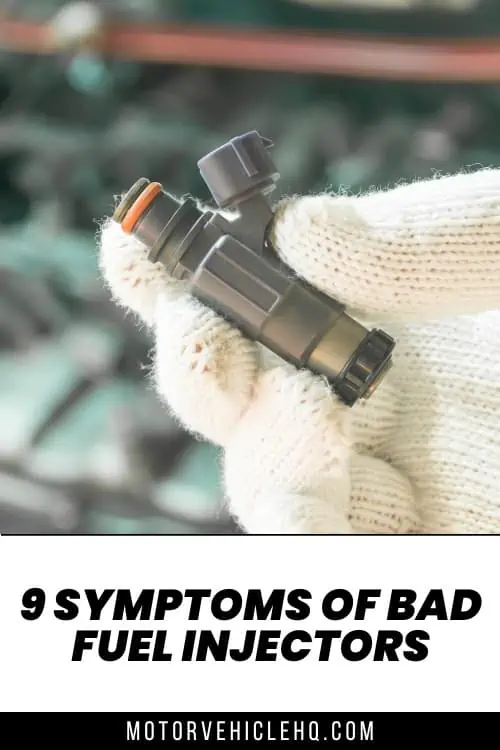

Nyangano Maurice specializes in vehicle troubleshooting and has more than 10 years of experience in the automobile industry. Over many years of experience as a car mechanic, he has acquired a broad range of skills, including engine repair, brake systems, electrical systems, and more. He frequently hosts community workshops and training programs to help motor vehicle owners understand their vehicles better.

